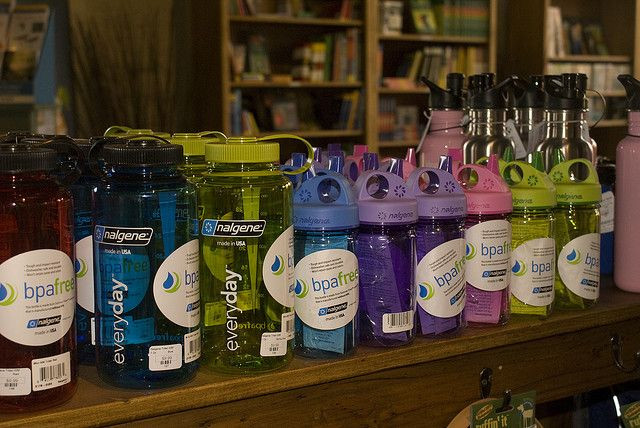First Ever Study Finds BPA Exposure Impairs Human Egg Maturation

New research from Harvard and Brigham and Women's Hospital has revealed that bisphenol-A (BPA), a controversial compound found in some plastics, impairs human egg maturation in a petri dish.
"To our knowledge, this is the first study that has shown that BPA has a direct effect on egg maturation in humans," said lead author Dr. Catherine Racowsky, director of the Assisted Reproductive Technologies Laboratory at Brigham and Women's Hospital.
"Because exposure to BPA is so ubiquitous, patients and medical professionals should be aware that BPA may cause a significant disruption to the fundamentals of the human reproductive process and may play a role in unexplained infertility."
Although the reasons are multifarious, and include issues such as slowed immigration and faltering economy, experts agree that the U.S. fertility rate has rapidly fallen.
Although it is debatable whether or not infertility is contributing to this decline, the condition impacts millions in the U.S., with nearly 10 to 15 percent of couples being unable conceive a child.
Many of these cases, up to 20 percent according the authors, occur for unknown reasons.
BPA has been fingered as possible culprit, due to the popular industrial compound being linked to nefarious health effects during fetal and infant brain development. But until now, fertility studies with BPA have mainly involved animal models.
Racowsky and her colleagues collected 352 eggs — "germinal-stage oocytes" — from 121 consenting patients at the Brigham's in vitro fertlization (IVF) clinic in Boston. If not they had not been used in this study, the eggs would have been otherwise discarded.
One egg from each patient was left alone, while the remaining eggs were exposed to one of three doses of BPA: 20 ng/ml, 200 ng/ml, and 20 µg/ml. The lowest dose is on par with what has been measured in human urine samples from multiple national surveys over past two decades.
The eggs were examined for 30 hours under microscopes to track their development, which involved the appropriate segregation of genetic material as the cells divide into mature oocytes.
The researchers found that BPA impaired the oocyte maturation. The percentage of oocytes that reached full maturation significantly declined — by 50 percent — with the lowest dose of BPA. Spontaneous activation, an abnormal event where an egg behaves as if it is fertilized when it is not, increased with BPA dosage.
Although the study is small and requires additional follow-up in a larger sample, it does raise concerns about the impact of BPA on female fertility.
"Our data show that BPA exposure can dramatically inhibit egg maturation and adds to a growing body of evidence about the impact of BPA on human health," said Racowsky. "I would encourage further research to gain a greater understanding of the role BPA plays in infertility."
Source: Machtinger R, Combelles CMH, Missmer SA, et al. Bisphenol-A and human oocyte maturation in vitro. Human Reproduction. 2013.



























